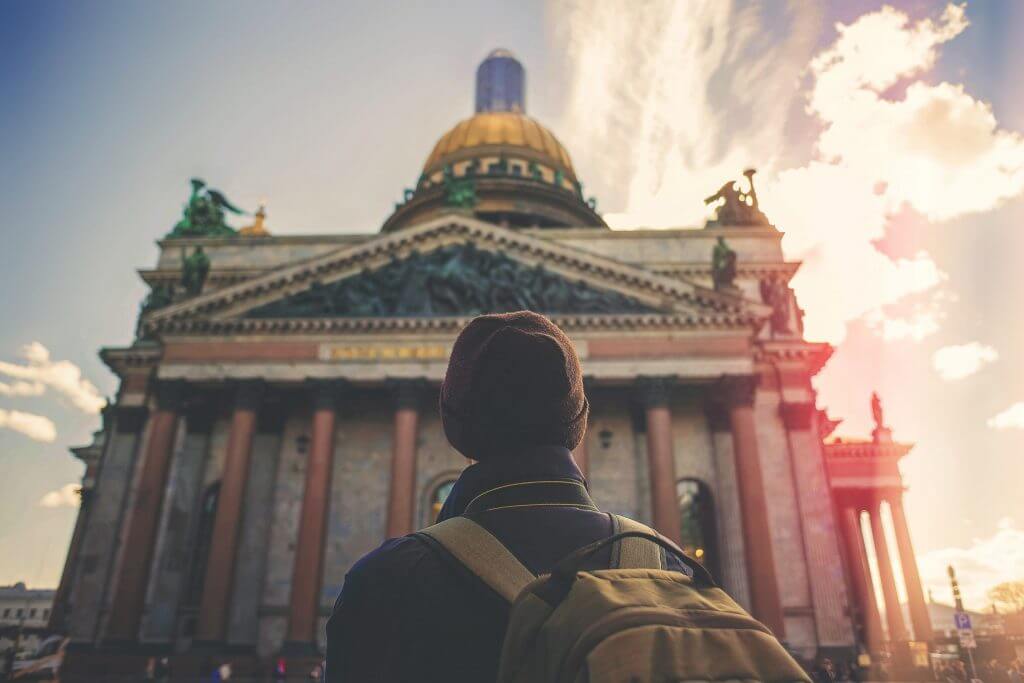Everyone has a different story about why they are Catholic. Some have a conversion story from another religion; other people have internal conversions which take place after formally entering the Catholic Church.
My wife became Catholic thanks to nannying a Catholic family. My mother was inspired by my father’s example during the early years of their marriage. A friend said it was recognizing the good fortune in having friends who took care of her when she blacked out from alcohol which convinced her to look for a better path.
My story is as unique as theirs. I hope you find it useful.
While in college, logic, trial, and error tested my faith. But it didn't change anything.
I was raised Catholic in New England. Being abstinent, pro-life, and a weekly attender of Mass put me at the radical edge of the Catholics I know. Given my volubly contrary nature (read: opinionated), my reputation tended to precede me around my college campus.
That reputation also led to many discussions about faith, abstinence, abortion, and more. It challenged me to truly consider the faith in which I had been raised. Did I believe in abstinence because Mom, Dad, and the Church said so? Are women’s rights at risk under pro-life laws, or have millions of babies been murdered in their mother’s wombs? Etc., etc.
Going through these debates and discussions caused me to think a lot more. I ended my four years at a liberal public college more dedicated to my faith. I had tested it through trial, error, and logic—and found the opposite arguments wanting.
If I can trust the Church in small, provable matters, I can trust Her in big, unprovable ones too.
Faith is often described as the chasm between what we can see and that which we cannot. As a concrete and evidence-based thinker, it’s difficult for me to internalize that a God who created an entire universe also loves each person intensely. I’m also generally unable to “see” God in art, beautiful sunsets, etc. as others say they do.
I’ve managed to find a way around this difficulty by recognizing that if I have found the Church’s teachings on provable matters to be consistent, trusting Her on matters of faith is a bit easier. To put it another way—I can’t prove beyond a reasonable doubt the Church's teachings on the Eucharist, Mary’s virginity, praying to saints, and other matters of faith. But since the Church is objectively right about the matters of my daily life, and no other religion is, trusting Her to be right about the stuff I can’t prove makes sense.
Finally, for me, C.S. Lewis’s Mere Christianity provided further assistance. While he wasn’t Catholic, his logical argument for Christianity as the one true religion provides a foundation upon which the logic of the Church’s teachings prevails over Protestant denominations.
The Church doesn't need to prove herself to you—but she can. Just look at history.
Part of the reason my wife converted to Catholicism is the depth and quality of its intellectual foundations. She’s frequently described Protestant teachings as strong on emotion and Scripture…but lacking the intellectual rigor of Catholicism.
I was a little surprised at this. While I’m no historian, I’ve long appreciated how the Church has 2,000 years of research, theory, theology, councils, and more—influenced by Christ, the apostles, popes, laypersons, theologians, fishermen, and others. My wife’s declaration about the quality of the Church’s teachings was a welcome reminder that it is truly our faith which best connects humanity to God.
And if logic and reason don't attract you to the Church, consider your life's experiences.
So far, I've focused heavily on a dry subject—the logic of being Catholic, from my point of view. However, humans are also emotional and spiritual creatures, not just beings of the mind.
The fact is that I see the truth of the Church every day. When I talk to random people on the metro, or the airplane, or at Mass, I see that most people want to be good, kind, and generous. When I’m acting sinfully, I see how it affects how I treat those same people. I see how science continually shows the harm of contraception and abortion.
Prayer, Mass attendance, following the examples of the saints—these are designed to order us toward God. The more I participate in these, the more I am at peace with the trials and tribulations of life. And they all come from the Church.
Logic, trial and error, and experience—these are the tools which keep me Catholic, even on a bad day.


